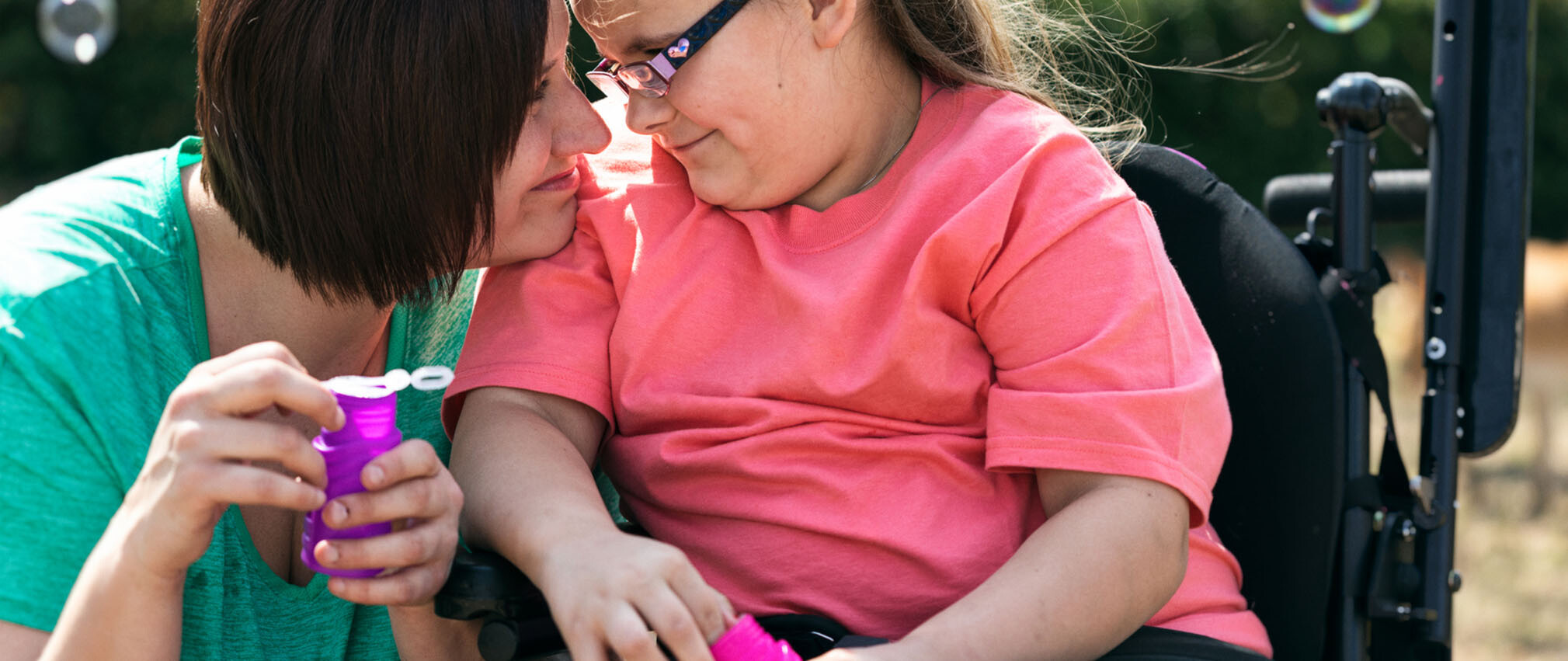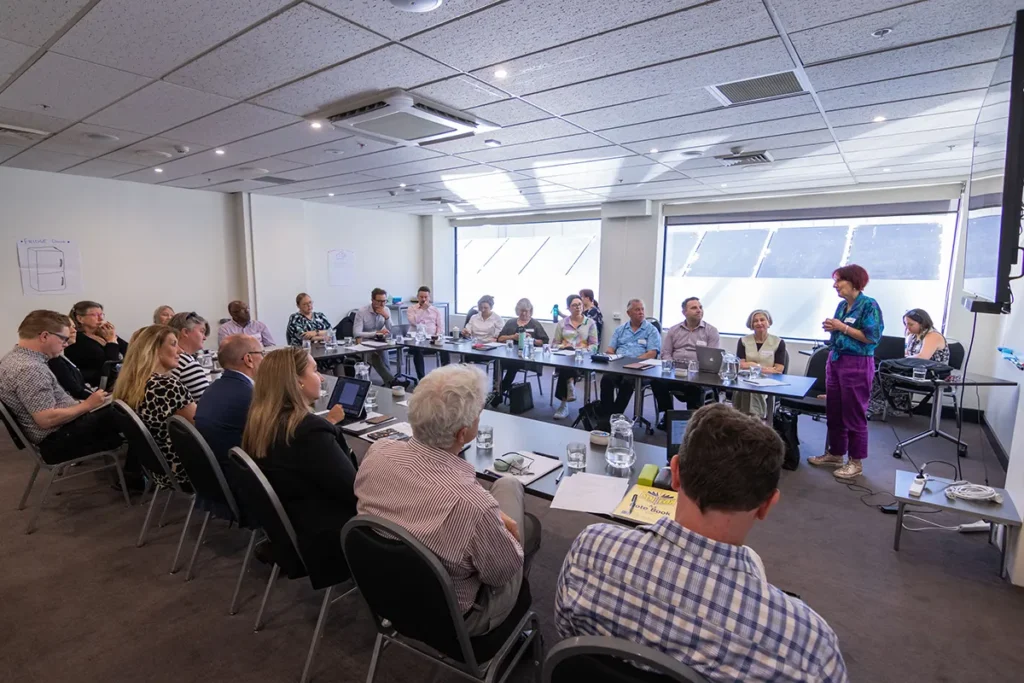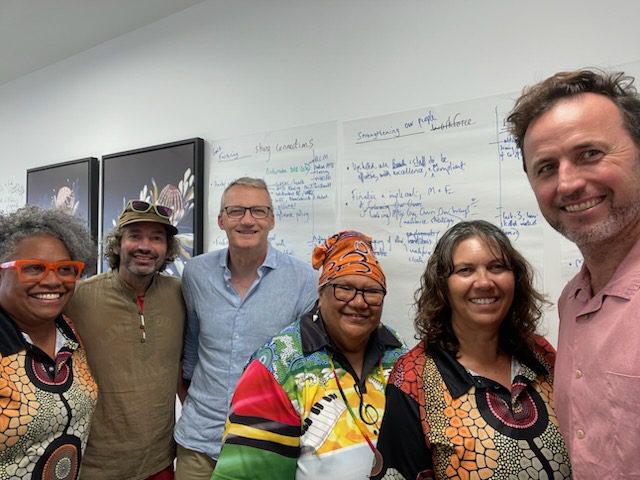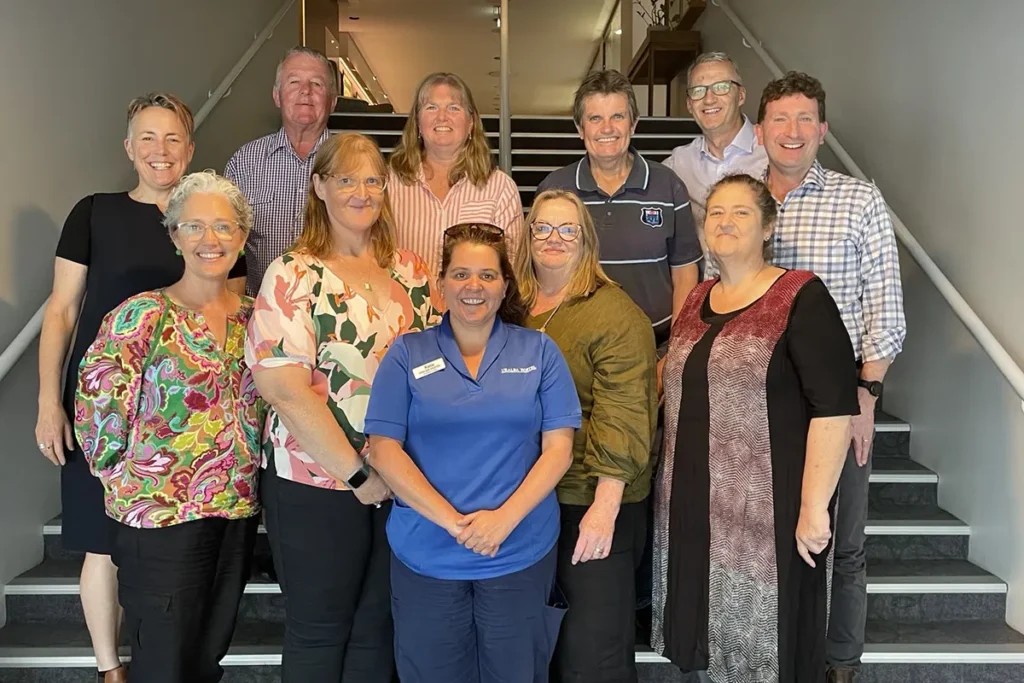Eurobodalla Community Care Co-operative
Creating a better future for care workers in Eurobodalla
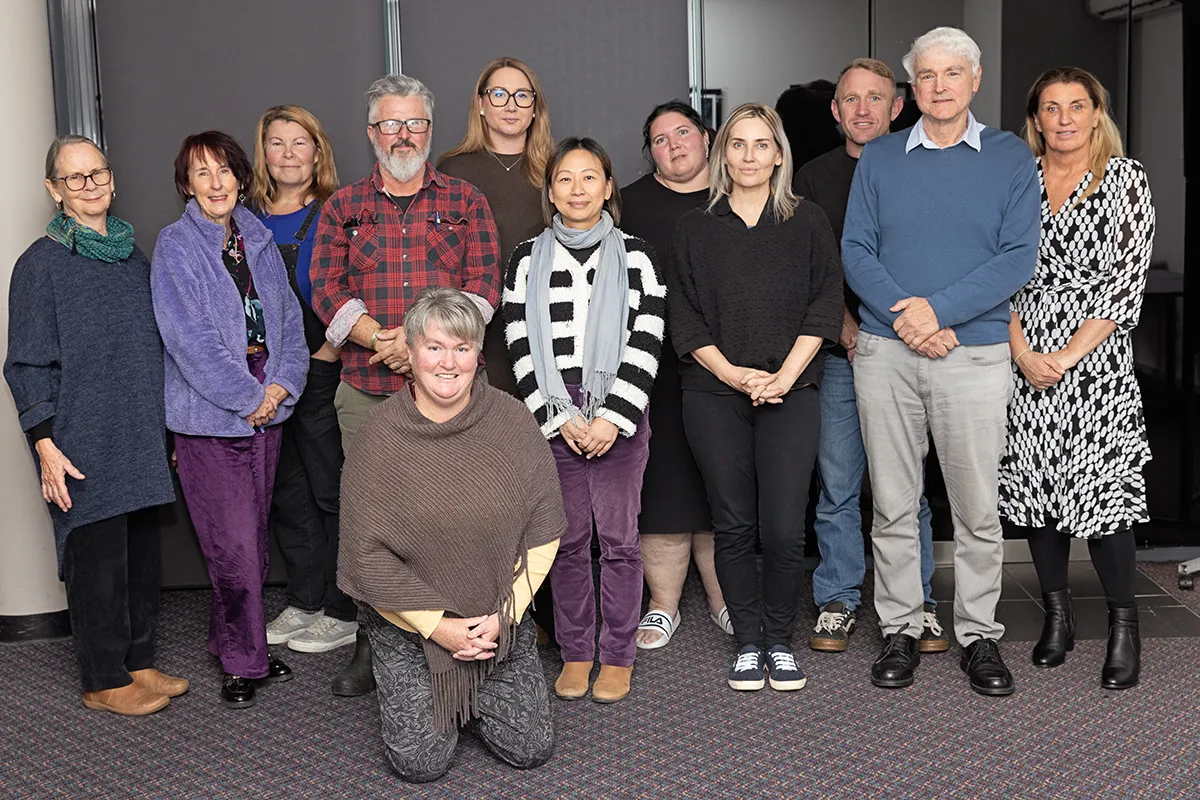
A Care Together Project
Bringing workers together in a co-operative, with support from the Australian Services Union, to help meet the challenges of a rapidly changing regulatory environment and growing demand for services.
Location
The location for the project is the Eurobodalla shire on the South coast of NSW, centred around Moruya.
What is the market failure being addressed?
A group of 30 disability support workers in the Eurobodalla have been functioning as an informal network of sole traders, assisting each other where possible by sharing knowledge and exchanging participant referrals. The growing demand for disability services in the area as well as increasing compliance and regulatory pressures mean, however, that these workers face challenges that are not easily resolved in their capacity as sole traders.
As well as burnout and income insecurity, many lack the ability, or time, to access training and professional development. They also grapple with similar administrative burdens, which typically need to be completed outside of normal work hours. In many cases, a one hour session with a participant will require another hour of (unpaid) administrative work.
All of these factors have contributed to a stretched and fatigued workforce struggling to service the growing needs of participants in the area.
Uncertainty surrounding further compliance requirements that may flow from reforms arising from the recent Royal Commission into Disability Services is another source of concern for these workers.
What is the project seeking to achieve?
The aim of the project is to investigate whether a co-operative structure can support workers by facilitating opportunities for improved training, skills development and work/life balance as well as creating safer, more secure working conditions.
The hope is that better support in these areas through sharing of resources will ensure the retention of skilled workers in the area, which is seen as vital at a time of new and emerging quality standards for the care sector.
The wider objective is to improve the quality and reach of support and care services in the region.
Existing workers are primarily engaged in providing care and support services for NDIS participants, but the project will consider expanding to include aged care and indigenous care services.
Where the project is at now
Now officially formed and registered as a co-op, the Eurobodalla Community Care Co-operative (ECCC) has developed from an informal network into a vibrant, values-driven collective that is tackling workforce shortages and uneven care provision in the region. Born out of the challenges faced by independent care workers, the co-op now stands as a practical and inclusive response to escalating demand, changing compliance standards and the pressing needs of the local region.
Over the past year, the co-operative has remained focused on its founding vision of bringing care workers together to pool resources, support one another and offer better quality, person-centred support. The co-op is also widening its reach to include aged care and culturally responsive services for First Nations people.
Establishing the co-op has also meant formalising what was once an informal support network. Members now benefit from collective governance, shared knowledge and the support of Care Together. Two operational models have been designed: a flexible small-scale start-up structure suited to early development, and a more expansive growth model to be adopted as the co-op’s reach and resources increase. Each emphasises local leadership, peer collaboration and streamlined service delivery.
ECCC is now recognised as an innovative and adaptable blueprint for Australia’s care sector challenges. Looking ahead, the focus is on scaling up by recruiting more members, strengthening partnerships and upskilling existing and new workers. Given a high proportion of the region’s residents are either aged or living with disability, and with chronic health conditions on the rise, the ECCC’s model is set to keep care local, accessible and grounded in the real needs of Eurobodalla.

Case study: Pei-Shan Wu
“Workers can come together, and they all have access to training to increase their skills, and keep up with their professional development. To me that’s a great bonus for the community, if they choose a support worker from a co-op, it’s going to be a certain standard. The benefit for me is the sense of belonging. It can be very isolating being an independent support worker.”
“It’s not just about what the support workers need, it’s about what we want to see in the community”.

– Pei-Shan Wu – Independent support worker and Founding ECCC Board Chair
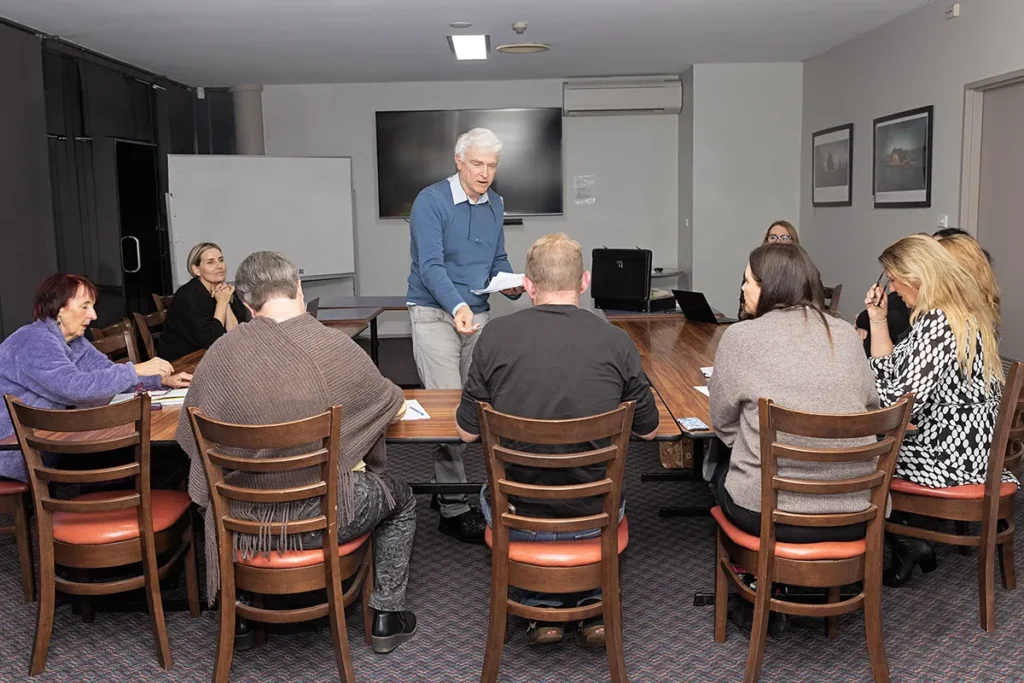

Case study: Michelle Lloyd
“In the beginning, there was five of us that worked in a program and were all made redundant through the transition of the NDIS and block funding change. In that process, what we realised was the things we previously had in services like long-service leave, supervision, resources and all those things were no longer available to us as sole traders. What we saw was a lot of good workers burn out, a lot of people leave the industry, and also saw that people weren’t getting the quality of care that they deserve.”
“What excites me is the potential for people to have true access, true choice and true control of their own lives.”
“My hope for the future is that the co-op will bring heart, soul and dignity to the care sector.”
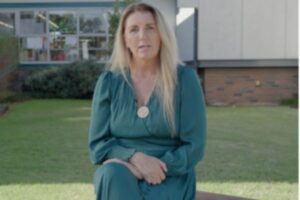
– Michelle Lloyd, Community sector worker
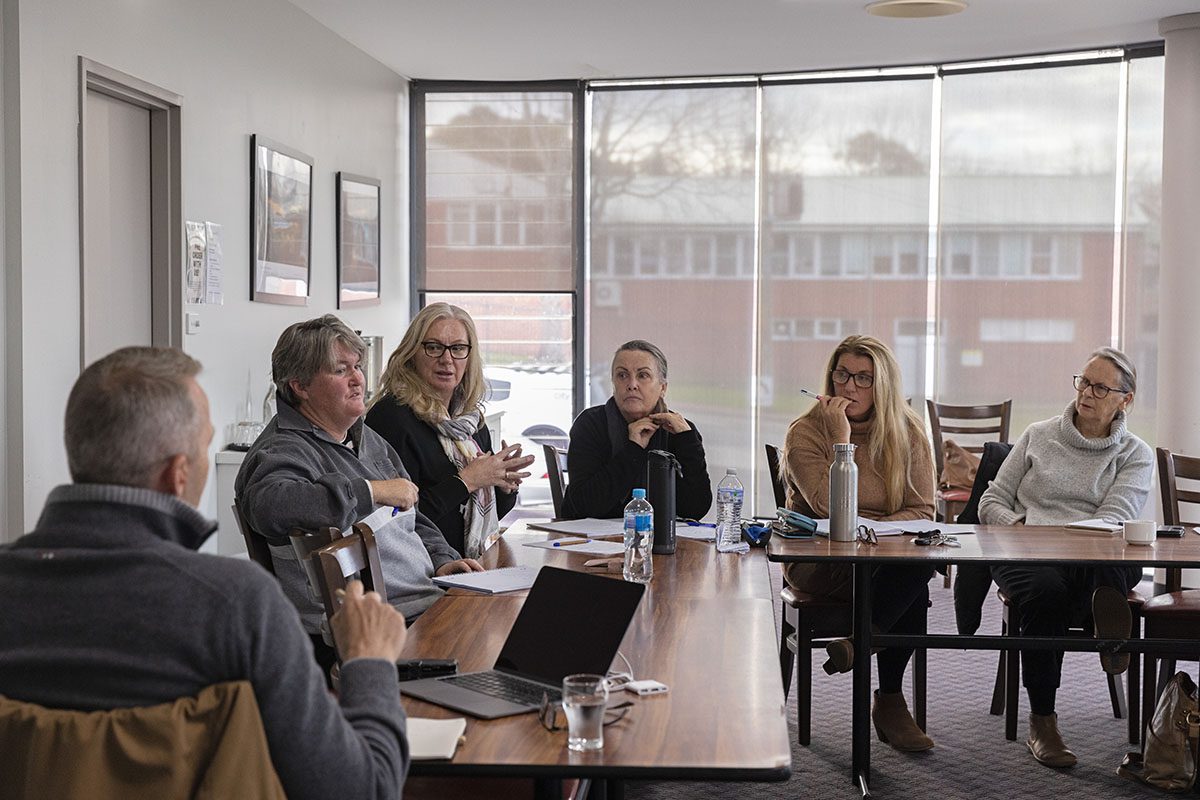
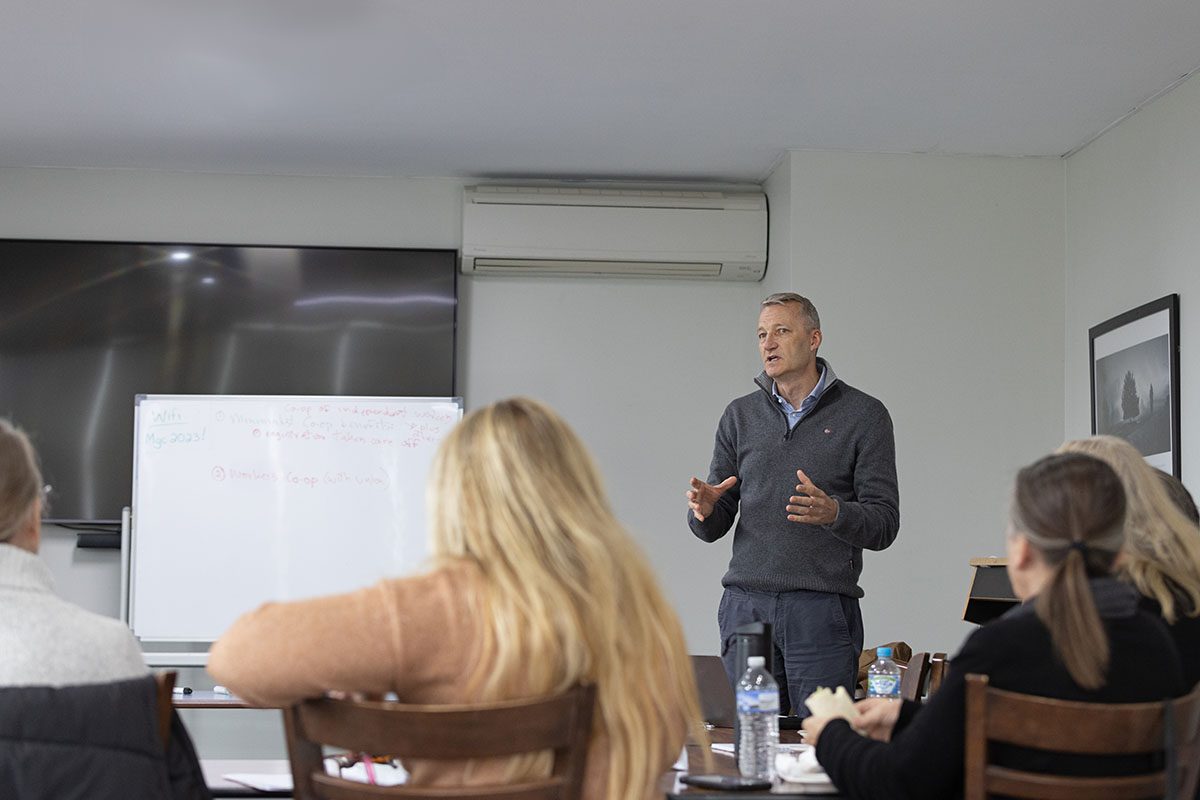
Quotes from the steering committee
“Working as a collection of individuals intent very often just on keeping our heads above water, we don’t really have space to expand what we do into new and perhaps more specialist areas. We often have to turn down new referrals, and many of us would love to support more people in our community to gain the skills and knowledge to join us in the work we do.”
“Collectively we recognise there is significant change in the Aged Care and NDIS sectors and that for many reasons change in these areas is necessary for the benefit of those who are most vulnerable. What drives us is being able to provide quality services to participants that are holistic and centred on genuine choice and control.
“The concept of the co-operative model has great merit as it can provide the functions of training, continuous improvement/ audit, best practice, accreditation and staff support required by sole traders and small organisations.
“With a clear vision and structure, it can provide these without stifling creative, flexible and authentic client support as has happened in many large disability and aged care organisations.
“We are over-stretched as a loose collection of individuals and our client participants are not always getting the quality or level of support that they should. This would change for the better if we were all working under the mutual support umbrella of a co-op with well-designed service delivery patterns.
“Working as members of a co-op, whether in a continuing sole trader capacity or as co-op employees, will give us all economies of co-ordination and scale that will facilitate better working conditions in relation to leave and many other areas.
“Working as members of a co-op, whether in a continuing sole trader capacity or as co-op employees, will give us all economies of co-ordination and scale that will facilitate better working conditions in relation to leave and many other areas.”
Related projects
Care Together is supporting the establishment of new co-operative and mutual enterprises that provide sustainable workforce solutions in areas where current approaches are not working. Explore more Care Together projects.
Find a care co-op or mutual near you
Use our new interactive map to find care co-ops and mutuals across Australia.
